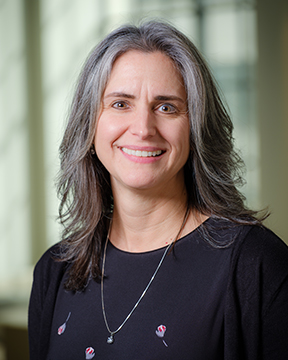Wake Downtown grant will take STEM lessons into K-12 classrooms

With a grant from the Jessie Ball duPont Fund, Wake Forest University will start a program this fall to provide free STEM educational activities to K-12 students in local Title 1 schools.
The program, based at Wake Downtown, will train undergraduate students to conduct STEM-based lessons in schools. The aim is to introduce more K-12 students in Winston-Salem to the possibilities of STEM (science, technology, engineering and math) studies.
The 18 students who will train as STEM docents this year will expand Wake Downtown’s ability to take science experiences into the community. Once trained in science communication, the docents will help lead programs in local schools, in public spaces like Kaleideum, and at Wake Downtown.
Since opening in 2017, Wake Downtown has responded to requests from local educators to help their K-12 students delve deeper into STEM topics. Chemistry professor Rebecca Alexander used a National Science Foundation grant in fall 2018 to teach students at Mount Tabor High how bacteria develop antibiotic resistance. Faculty also have forged relationships with STEM educators at Kimberley Park Elementary, Cook Elementary, Paisley Middle, Parkland High and Carver High. But the requests outpaced faculty capacity.
“Our K-12 partners have asked us to provide additional educational opportunities to expose students to lab work and STEM career tracks,” said Alana James, associate director of community engagement for Wake Downtown and Wake Forest Baptist Health. “We’ve been able to say yes to a lot of things, but we want to say yes to more of them.”
Wake Downtown will use the $80,420 grant from the Jessie Ball duPont Fund to develop and implement the docent course and to provide trained docents with technology and supplies for conducting lessons in schools. Called Science Communication & Outreach, the course will be taught by Matt Brady, Parkland High science teacher and co-founder of TheScienceOf.org, which does STEM outreach nationally.
“We have so many startups and high-tech companies in Winston,” Brady said.
“It’s important for our students, and people throughout the community, to understand the science as well as the opportunities available to them.” Matt Brady, Parkland High science teacher and co-founder of TheScienceOf.org
The STEM docent program will be pilot-tested this year. In the future, interested undergraduates from other local colleges and universities could enroll in the course and participate as docents, increasing the connections between K-12 students and STEM-focused college students across the community. That’s a vital step toward supporting the success of underrepresented populations in STEM fields.
The most recent statistics from the National Science Foundation show that underrepresented minorities received 11 percent of research doctorates in science and engineering, but comprise 27 percent of the U.S. population and about 30 percent of the workforce.
The Jessie Ball duPont Fund focuses on programs that bring together communities to benefit all of its members, and the STEM docent program aims to do this.
“We want to make STEM approachable and accessible to everyone.” Rebecca Alexander, director of academic planning for Wake Downtown
“We’re building an infrastructure to make it easier for faculty and students to invite schoolchildren to Wake Downtown and to go out into the community and share our science,” she said.
Categories: Community Impact, Research & Discovery
Wake Forest News
336.758.5237
media@wfu.edu
Meet the News Team
Headlines
Wake Forest in the News
Wake Forest regularly appears in media outlets around the world.




